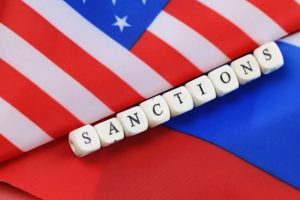Talk of Rusal sanctions ignites fears of 2018 delivery premium surge
Aluminum buyers will have read a recent announcement in Bloomberg with a sense of panic, if not déjà vu, as the specter of Rusal sanctions reportedly looms again.
“Aluminum Surges on Concern U.S. May Reapply Rusal Sanctions” ran the headline, reminding buyers of the chaos that ensued in 2018. At that time, the Trump administration applied sanctions against Oleg Deripaska, owner of En+ and, therefore, Rusal Aluminium. The decision effectively banned Rusal metal from the U.S. market. Furthermore, it banned, by extension, metal from any suppliers of product based on Rusal primary metal – much of Europe and parts of Asia.
Cut-to-length adders. Width and gauge adders. Coatings. Feel confident in knowing what you should be paying for metal with MetalMiner should-cost models.
Rusal sanctions Part 2?
By way of context, Rusal is the largest aluminum producer in the world outside of China. The company accounts for some 6% of global supply.
The firm is the largest supplier in Europe and still retains the position of being in the top five to the U.S. market.
Back in 2018, when Rusal stood on the outside looking into the Western world’s metal markets. Physical delivery premiums, particularly the Midwest Premium, skyrocketed to nearly $500 per metric ton. (Although, it has to be said, the Midwest Premium was already somewhat elevated before the Rusal sanctions by earlier, more Chinese-focused tariff action.)
There appears to be a number of factors at play this time around.
Back to 2018
The resolution of the 2018 sanction against Deripaska was that he should step back from control of En+ and Rusal. The outcome came as part of a complex deal brokered by Rusal’s chairman Greg Barker at the time.
Deripaska sold or transferred ownership of his shares, reducing his position to a minority holding of 45%. There remains some skepticism that he stepped back completely from the business, but third part monitoring supports his compliance with the terms of the Barker agreement. However, all sides at least had a negotiated resolution that appeared to give credence to U.S. concerns that he should no longer have control and, therefore, action against Rusal could be lifted.
The current situation has arisen after European officials alerted U.S. authorities that Deripaska personally oversaw a media campaign led by En+ company executives to undermine China’s reputation in Africa. The campaign reportedly also aimed to spur opposition to Chinese imports into Europe. If correct, the campaign has been pretty successful. The E.U. brought several hefty anti-dumping cases against Chinese semi-finished product and reduced imports in 2020. It must be said for the record that, and I quote, “Rusal vigorously refutes in the strongest terms any suggestion that it violated the terms of its agreement with OFAC.” Considering the speculation in the article to be “totally false, groundless, and untrue,” a statement by the firm Dec. 17 states.
Incoming U.S. administration
The stars are not exactly aligned for Rusal currently.
President-elect Joe Biden is unlikely to roll back Trump-era trade restrictions in the short term. Incoming Treasury secretary, Janet Yellen, is not said to be well disposed to the oligarch, either.
Bloomberg reported a Senate Intelligence Committee report released in August described Deripaska as a proxy for the Russian state and its intelligence services. That’s not exactly a tag likely to garner favorable treatment.
Market impact
So far, the news’ market impact has been muted.
The LME and SHFE prices have not responded to the news overnight, although the LME did surge when the Bloomberg article came out during the day.
Of more concern could be delivery premiums. Like the LME metal price, delivery premiums have been on the rise since mid-November (further back for the metal price). Both have been on an upward trend. The weakening dollar, recovering automotive and general industrial demand, and a shortage of metal in the supply chain — resulting in some level of panic buying of semi-finished product — have supported the prices.
Buyers should keep tabs on the Rusal issue. If the U.S. takes action, it would almost certainly result in significant upside risk to the metal price and, particularly, delivery premiums. However, one has to hope lawmakers learned their lesson back in 2018 and will seek to find a less contentious and market-distorting solution than a return to outright sanctions.
Stay up to date on MetalMiner with weekly updates – without the sales pitch. Sign up now.



Leave a Reply